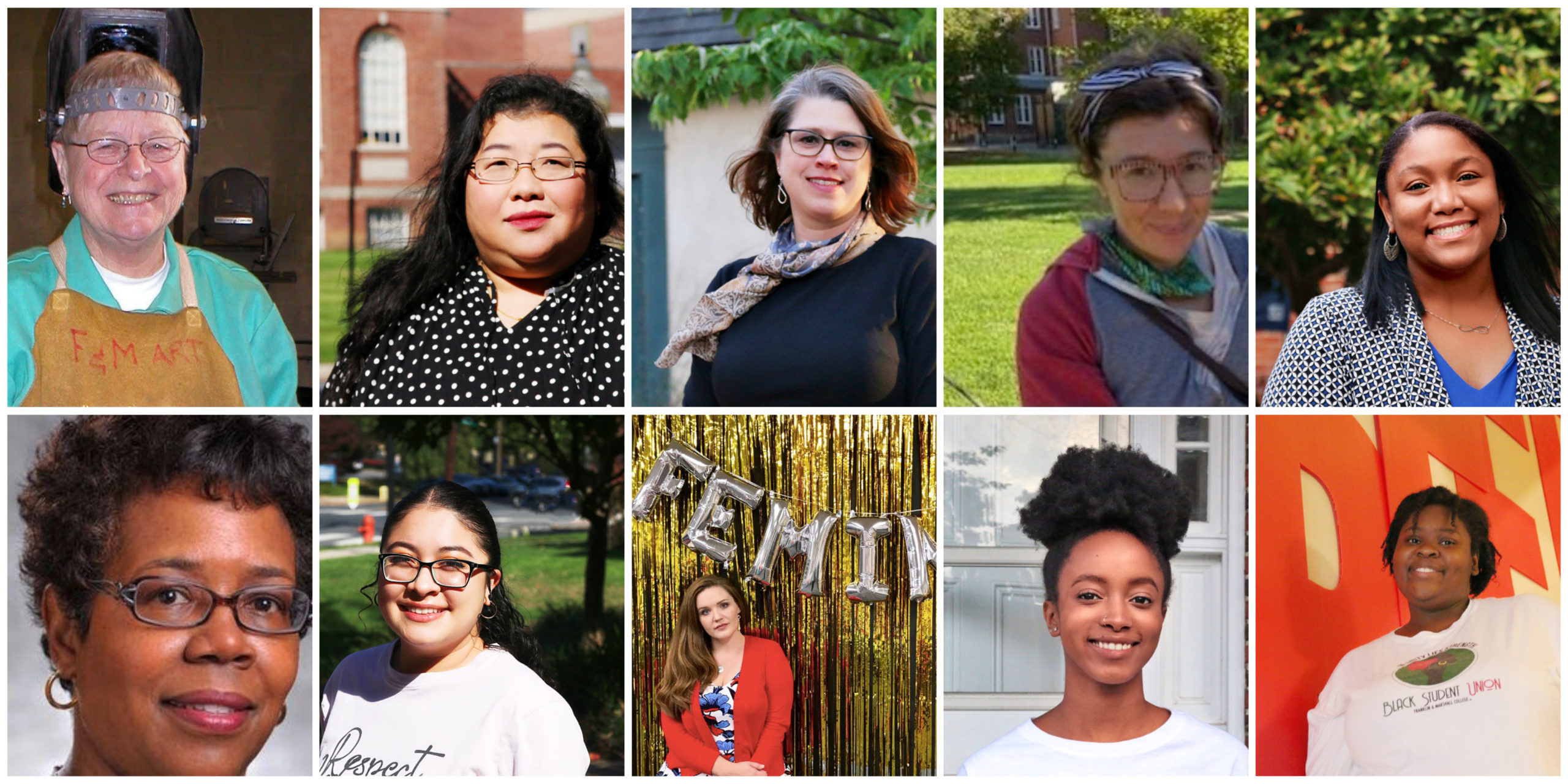By Sarah Nicell || Layout Assistant

As I grow older and develop a sense of comfort in my first year of college, my appreciation for the women in my life grows stronger. As a single parent, my mother worked diligently to keep her family intact, content, and entertained, all while balancing a career and an abundance of foster cats on her shoulders. The most influential educators in my life have shared my gender experience as a woman in a male-dominated world, working to promote equality in their classrooms, open up their offices, and create safe spaces for their students. Throughout my teenage years, I surrounded myself with the most astonishing group of girls who uplifted me and inspired me to be the person I am today. To leave them and come to F&M was quite possibly the most difficult decision I have ever made.
Fortunately, upon my arrival, I quickly realized that women are the driving force for this college’s success, from President Altman’s strong leadership to the seventeen women currently serving as chairs of Franklin & Marshall’s many academic departments and programs. In just two months, I have been exposed to a plethora of tales of strong, inspiring, and influential feminists on campus, and I wanted to get to know them.
After 50 years of F&M’s coeducation, over sixty nominations, ten interviews, and some amazing pictures taken by Guangyu Yang, here are their stories.
Rachel St. Louis ‘21
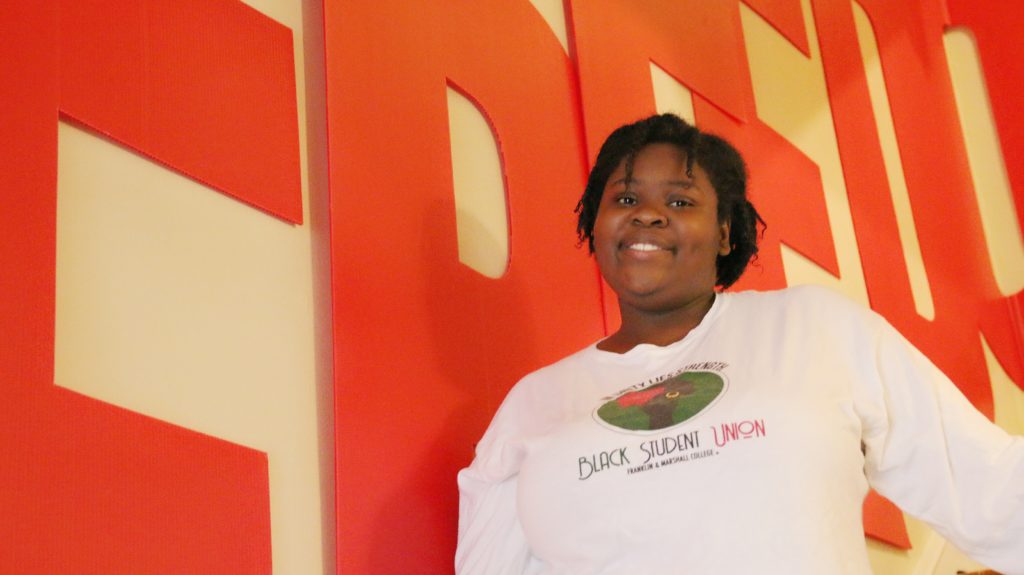
No matter who I approach on this campus, every person always has something remarkable to say about Rachel St. Louis. As an active member of SISTERS, the public relations officer for Model UN, president of the College Democrats, and most notably, co-president of the Black Student Union (alongside Ayana Stuart), busy is a colossal understatement for Rachel’s daily life. With every role she takes on, Rachel fights to ensure that everyone is represented, heard, and held accountable for their actions. Even with these quite pressing responsibilities left upon the shoulders of a college senior (who is simultaneously obligated to complete classwork, plan events, and, on occasion, sleep), Rachel finds a way to make it all work.
Noting an increasing frustration on campus with the lack of representation in classrooms, St. Louis and the BSU campaigned tirelessly for change by drafting and publishing Op-Eds for The College Reporter, such as “Blink Twice If You’re Tired Of Your White Ass Professors!” Conditions at F&M, particularly as a consequence of last year’s notorious Halloween scandal (and as Rachel stressed, October 31st is not the only time that racism brews on campus), have not made Rachel’s jobs any easier, and yet she perseveres, exhibiting strength and determination far beyond anything expected of the average young adult. Demonstrating a mantra of “every place, every building is the protest tree,” as a BSU co-President, she embraces the fight against complacency and battles stereotypes, racism, and hostility, and violence toward marginalized communities. In September, the Black Student Union’s Scholar Strike, an event Rachel helped organize and spoke at, saw a tremendous turnout. Not long after, following protests in Lancaster resulting in the arrest of F&M’s own Kat Patterson and several others, Rachel created the GoFundMe campaign that provided over fifty thousand dollars to Kat’s family for legal support.
“The amount of support and outreach that we have been able to give other people has been amazing,” Rachel explained. In her time with the organization, the BSU has donated impressive amounts of money to black-owned Lancaster businesses and national bail projects.
Besides being an incredible activist, student, leader, and friend, St. Louis is a woman, and an amazing one at that. “It is very necessary to be mindful of a woman’s role in higher education,” she emphasized. “We are honestly the ones who should always be in the room, and when we are, we come with a lot of power in numbers: in the way we speak and in the way we get things done.” As a feminist, Rachel acknowledges that the unheard are often the ones that have the most important things to say. After speaking with Rachel, I know that her voice demands all ears.
Arianna Felix ‘21
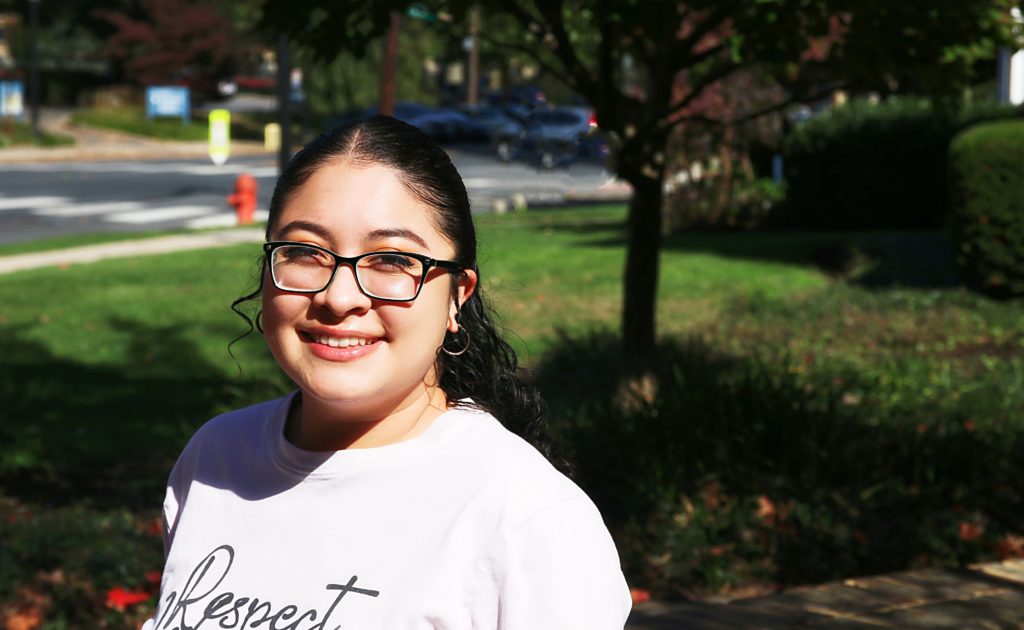
After meeting F&M senior Arianna Felix, it takes only a couple of seconds (three, maximum) to know that she is an incredible person, student, and friend to those in her community. As an executive board member and intern at the Alice Drum Women’s Center, an employee for the Office of Student Engagement and Leadership, frequenter of the Volleyball Club, a head of Diplomatic Congress, and, most distinctly, the co-president of Mi Gente Latina, it is surprising that she had the time to meet Guangyu and me to pause to have her picture taken with such enthusiasm and patience. Being an outwardly inspiring and involved woman herself, it was rewarding to hear Arianna’s perspective on the need for women’s voices at the table.
“Women, in general, are just so powerful, and for so long we’ve been treated as less,” Felix explained. At F&M, women have only been admitted for fifty years (in comparison to the over two hundred years that men have walked this campus’ grounds). According to Arianna, as women, our authority and influence often go unrecognized, but the time for change, to finally be viewed as equals, is now. Even the very concept of womanhood is often perceived as a vice, she asserts in our discussion. The condemnation of femininity as a weakness is problematic when our society directly benefits from women’s actions.
Representation, however, does not simply stop at bringing women into the limelight.
“Just because we live in a white-dominant, heteronormative, patriarchal society,” Arianna begins, “I think it’s essential to have BIPOC and queer representation within all positions of power. To me and to many others, BIPOC women in these positions are inspirations, and they give us the courage to believe in ourselves.” When people who look like us, who have led similar lives and experienced similar encounters, are placed into positions of power, Felix acknowledges that something sparks. Just as Arianna acts as a role model to those around her every day, others too provide an example for the world to appreciate and learn from.
As for her greatest accomplishment, Felix admits that going to college is something that she will forever take pride in.
“From the community I come from, and it’s similar for a lot of other BIPOC, we do not really get the opportunity to go to college, and I am very grateful for being able to.” She credits the hard work of her parents, as well as her own dedication to academics and student involvement, for her amazing achievements, and it is undeniable that F&M is extremely fortunate to have gained Arianna as a Diplomat.
Chelsea Reimann
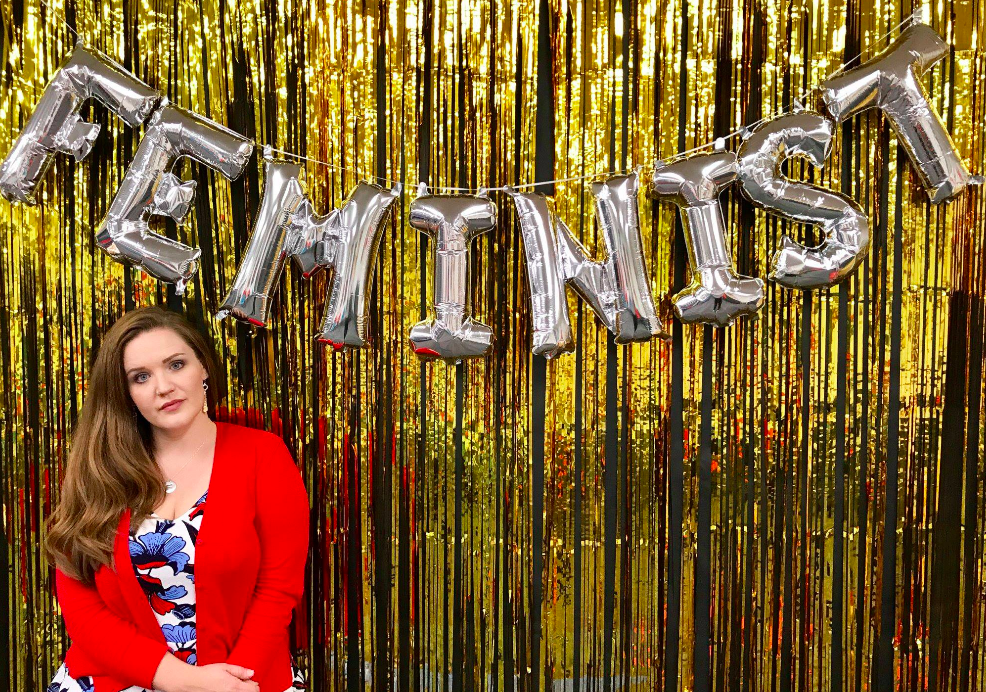
After being an active member of my high school’s Gay-Straight Alliance and a strong advocate for feminism back in South Jersey, it is no surprise that Chelsea Reimann is the first name that piqued my interest upon arriving on campus. With five years of service to F&M under her belt, and as the Alice Drum Women’s Center Director (a role which she took on in 2017) and the Director of LGBT Student Life, Reimann takes on an incredible sum of work that is meaningful, helpful, and essential to F&M’s livelihood. After our excellent conversation, Reimann’s stance on the need for the presence of strong women on campus was made abundantly clear.
“I think it’s important to have strong women everywhere,” she emphasized. “And there are strong women everywhere. I think that the thing that we need to do is elevate and support and celebrate strong women because there are strong women in every little tiny nook and cranny of this planet.”
However, women are not the only subject of importance to Reimann, and she is adamant about the need for gender equality to support people across the gender spectrum and of all identities.
“Feminism isn’t about girl power, and that’s it. We want justice. We want liberation for all women, and that includes trans women.”
This intersectionality is evident in everything that Chelsea Reimann accomplishes, including her work at the Women’s Center. From hosting pop-ups on Hartman to having serious meetings with fellow members of the college as a dual director, Reimann’s conversations never fail to include BIPOC, LGBTQ+, religious, and disabled communities. Reimann explains that her work exhibits a sort of “never arrival of feminism,” indicating a refusal to be satisfied with the current state of affairs. Improved inclusion and education are always possible.
“There’s great sorrow but great joy in unlearning,” Chelsea explained, describing how the disruption of our comfort is essential to working toward inclusion and representation for all. As I learned from this interview, sometimes we must reevaluate what we think we know about the world and look inward, which revolutionizes our thought for the betterment of society.
Chelsea Reimann grew up in a very conservative place, exacerbated by the fact that her family was Mormon. This experience often results in dangerous circumstances for queer teens, who often experience intense discrimination and backlash from their families purely for existing as they are. LGBTQ+ children were often disowned, as some still are today, and little was expected of those who rejected the status quo.
“To be queer was to be othered in a way that meant no future,” she told me, and the reality of her statement, even as a queer woman myself, was jarring. However, despite the expectations from others, Reimann has made it clear that she is not one to be pinned down by stereotypes.
“I have so exited the orbit of what people thought was possible,” Chelsea shared, a statement that takes an amount of courage rare to possess. To be yourself without shame, with pride, is an admirable thing to do when the people you love may not accept you for who you are, and it is a lovely thing that Chelsea has offered those at F&M the opportunity to feel the reciprocity of love and acceptance that they may have missed at home.
She also was one of the first women in her family to graduate from college, and now, as an out and proud queer woman, Chelsea Reimann inspires others to be themselves every single day.
Ayana Stuart
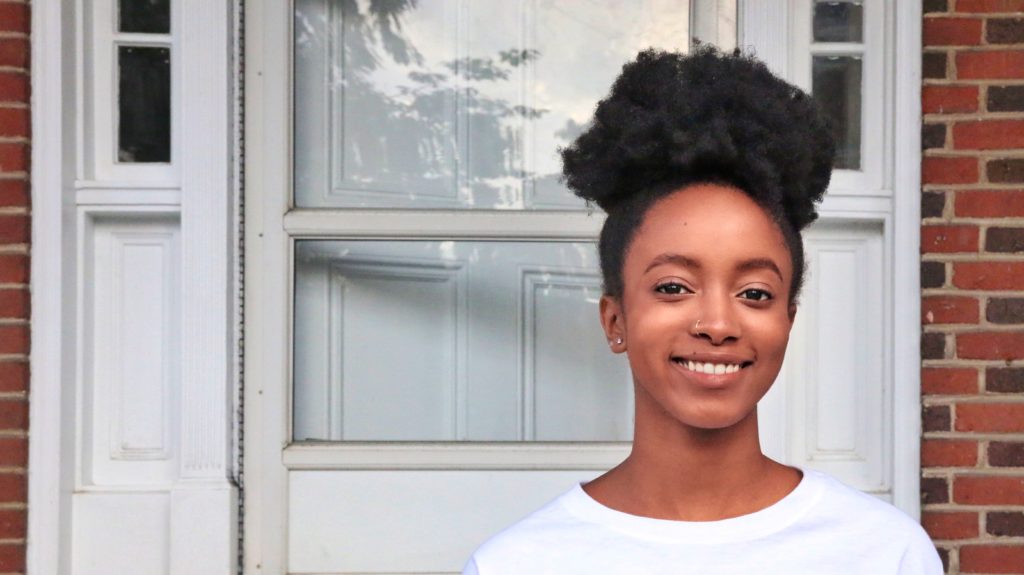
Ayana Stuart is very possibly one of the most talented people I have ever had the pleasure to meet.
She acts as President of the Black Student Union (with Rachel St. Louis), Inaugural Executive Officer for Social Justice and Equity on Diplomatic Congress, a member of Music Honor Society, and a physics major with an applied math minor, all while taking three and a half courses at once. With only two hands and an unfortunate inability to be in two places at once, Ayana’s leadership skills, accomplishments, and dedication to her work, despite their intensity, are to be admired.
Within these roles, Ayana Stuart ensures that black students, as well as the many multicultural and identity-based organizations on campus, are represented, have a safe space, and are included in important conversations. As a BIPOC woman pursuing STEM, Ayana understands what it feels like to be viewed as an outsider, as someone who isn’t ‘supposed’ to fit into a specific category. Underrepresentation is an extremely prevalent issue in STEM, and having one’s identity validated is an incredibly important factor to student success. For Ayana, Amy Lytle, Associate Professor of Physics, provided that validation.
“My struggles as a black queer woman were finally something that was recognized,” Stuart explained, emphasizing the importance of representative leaders setting an example. “You need that role model. You need that mentorship.” Other impressive women, such as Sonia Elliot, who serves as Director of Employer and Community Partnerships in OSPGD, have shown Ayana that anything is possible.
She finds no shortage of strength in women, even when this persistence is viewed by others as a vice. “Women consistently push through, continue to try, even if that means being the loudest voice in the room, the strongest voice in the room, even if that means you’ll be judged based on stereotypes for being strong and independent.”
Ayana knows better than anyone that there is not simply one problem with the systems currently in place. After all, even though women were granted the right to vote in 1920 with the 19th Amendment, black communities were prevented from voting long after that due to racist legal and de facto barriers. Gay marriage was not legalized until 2015, and even today some continue to question whether the LGBTQ+ commuity should be granted basic human rights like marriage.
“Ingrain your activism and your philosophies in every aspect of your life,” Ayana advised. In other words, the “practice what you preach” mentality is required to make progress.
Her proudest accomplishment is making her journey through education and finding her way to F&M. Ayana’s mother began taking online college courses while she was in high school, which was Ayana’s first real taste of what higher education might feel like. By pursuing it, she became the first in her family to attend a private institution.
Though Franklin & Marshall is a primarily white institution (PWI), Ayana has been able to overcome the feeling of being “the other in the room.” As a student and activist, she has “claimed the space as [her] own” and ultimately “worked to make F&M the campus I want it to be.”
To have the strength to fight to transform a space into something representative, comfortable, and safe for all students is an amazing thing, and Ayana has worked tirelessly in the effort to make this place better for future generations to come. From protesting to writing Op-Eds to uplifting councils of color, she knows that the progress made does not end here.
Ayana, one of the strongest people I have ever met, refuses to accept the discomfort that people expect her to tolerate. Her work, both on campus and off, demonstrates the power of standing up for what you believe in. We should all be a little bit more like Ayana Stuart.
Giovanna Faleschini Lerner
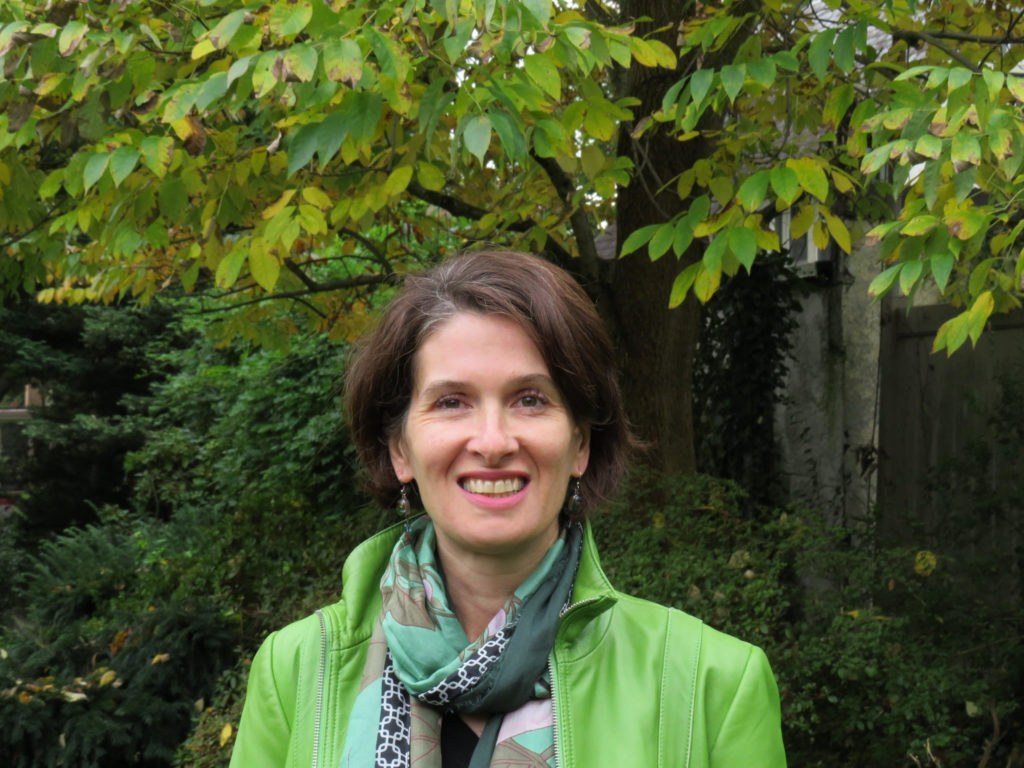
As one of seventeen women heading an academic department chair (specifically, that of Women’s, Gender, and Sexuality Studies), Professor Giovanna Faleschini Lerner is one of F&M’s most inspiring woman leaders. Most students know her as a Professor of Italian who is extremely dedicated to her research, which includes exploring Italian cinema (like in her current book project), literature, and culture.
After speaking to Professor Faleschini Lerner on the topic of representation, I was immediately struck by her emphasis on the need for strength across the entire gender spectrum, rather than leaving responsibility solely on the shoulders of women in professional fields.
“I think it’s really important to have strong representation and diversity, including in terms of gender identity and sexual orientation,” Professor Faleschini Lerner noted. “We need strong models for everyone.”
Through her experiences as an educator and a mother, she acknowledged the struggle to meet the standards of compassion in these unprecedented and partisan times and stressed its importance in human character. As a stereotype, women are often expected to meet a standard of maternal excellence, even in positions of power, and Faleschini Lerner opposes the notion that these overplayed assumptions pinned to the woman population should have anything to do with their role as leaders in society. The compassion, however, that accompanies womanhood instead is an obligation every person should have, regardless of gender.
“I resist the idea that it is because we are women that we need to be compassionate. I think we need to be compassionate because we are human beings.”
In terms of the progress that Franklin & Marshall is making toward true representation, Professor Faleschini Lerner remarks, “As an institution, we are trying to be more representative,” and these efforts are incredibly apparent in her work as an educator. Faleschini Lerner stresses the importance of diversity in Italian studies, even as many view Italy as a white-centralized nation; opportunities for representation are everywhere, as she demonstrates, in her passion for a “transnational dimension” in our view of language learning.
Concerning her professional career, she explains, “I am proud of the work I’m doing in my research on Italy and migration because I think that it is a strong example of how the humanities can say something important and highly relevant to contemporary crises.” Faleschini Lerner also expresses immense pride in her children and their compassion, intellectual curiosity, and overall goodness, which are extremely significant qualities that Professor Faleschini Lerner herself also possesses.
Gretchel Hathaway

Even though Vice President Hathaway has only been on campus since August, her work thus far has already made a wave on Franklin & Marshall’s campus. Her official title, Vice President for Diversity, Equity, and Inclusion, easily summarizes the responsibilities of her role. Her position at F&M also underscores the importance of resolving and ameliorating the problems with representation and discrimination the College has faced in the past.
To Vice President Gretchel Hathaway, diversity and inclusion work is demonstrated through the education of our community and the celebration of our differences.
“I really want us to have some challenging conversations,” she explained, acknowledging the intensity of today’s political climate. “I really want our right-leaning and left-leaning folks to come together and have really good, healthy, and respectful conversations so we can learn from each other.”
Educating ourselves on our differences and finding ways to cooperate is an incredibly important task, but unfortunately it’s not an easy one. Hathaway acknowledges this fact and discusses the importance of looking ahead.
“Starting now, we need to look at where we want to be in ten years,” Dr. Hathaway noted. Change cannot happen overnight, but the acceptance and understanding of all worldviews are essential to going out into society and being, as F&M desires, true diplomats.
Vice President Hathaway emphasizes that we need strong people of all gender identities, races, and religious backgrounds on campus because “we all have a different perspective.” To provide representation is to educate, learn from others, and develop a better sense of community. This is exactly what Hathaway’s job accomplishes, and it is a much-needed addition to the Franklin & Marshall campus.
“What I think I’ve accomplished, especially when it comes to the students,” she began, “they will actually come when things are bothering them when they see a bias when they are struggling.”
Despite the short amount of time that Vice President Hathaway has been a member of the F&M team, she has already created safe spaces, opened up conversations, and provided the next step to representation on this campus. I am excited to see how the Vice President will use this role moving forward and the progress that will be made.
Kaitlin Oliver
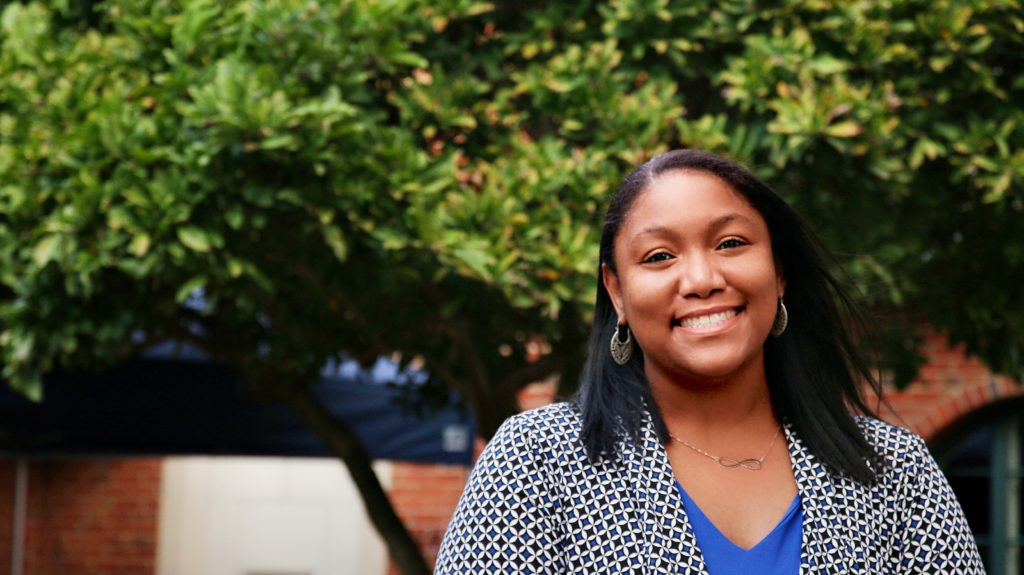
As a graduate of the class of 2016, the Senior Assistant Director of Admission, and the Coordinator of College Access and Inclusion, Kaitlin Oliver is connected to the College in a multitude of ways. Her job demands that she travel to schools to recruit for the institution, as well as work on F&M’s fly-in programs, collegiate summit, and other events regarding the multicultural experience on campus. Additionally, Kaitlin acts as the Posse Liaison and the Cooperman liaison, as well as the SISTERS faculty advisor and an advisor for Kappa Delta sorority. In fact, Kaitlin was a member of SISTERS at F&M while she attended college here in Lancaster, so it is only fitting that she continues this legacy by acting as a role model for those that follow in her footsteps.
“I do what I do because I love working with students,” Kaitlin explained, and her incredible work for the school proves it. Working in admissions, she interacts with possible recruits for F&M and regular students every day, further developing a connection to those around her.
When asked to describe why women are so important on campus, Kaitlin’s response was quite clear: “Women rule the world!” This point, I must admit, is difficult to counter. With a constant fight for gender equality around the globe, it is strange to limit our conversations on feminism to just Franklin & Marshall’s tiny bubble. Kaitlin’s goal, it seems, is to pop it.
“It’s really important to see women, especially women of color, in leadership positions,” she stated, emphasizing the significance of representation in large-scale areas. “Being involved on campus sets an example and helps build confidence indirectly in other people.”
Kaitlin also was clear that recent circumstances accompanied by the chaos of the political world provide us with a duty to exercise our right to vote.
“We have to go out and stand for what we believe in,” she continued, “We just have to.”
Kaitlin describes her proudest moment as graduating from F&M and “getting the opportunity to stay and work here and recruit students.” To come full circle, to start as a student and work her way to a staff position in order to help young adults like herself, is a wonderful thing.
As a product of the Collegiate Leadership Summit (CLS) program, there is no greater pride for Kaitlin than contributing to its progression as an adult.
This great accomplishment entails “being able to help other students see that F&M could be an option for them, especially students of color because I didn’t know F&M was an option for me until I came to this program.” This newfound ability to bring this hope for teenagers back, especially hope for those who remind her of a past self, is incredibly rewarding work that makes Kaitlin Oliver respected, loved, and admired by those at Franklin & Marshall College.
Rachel Anderson-Rabern
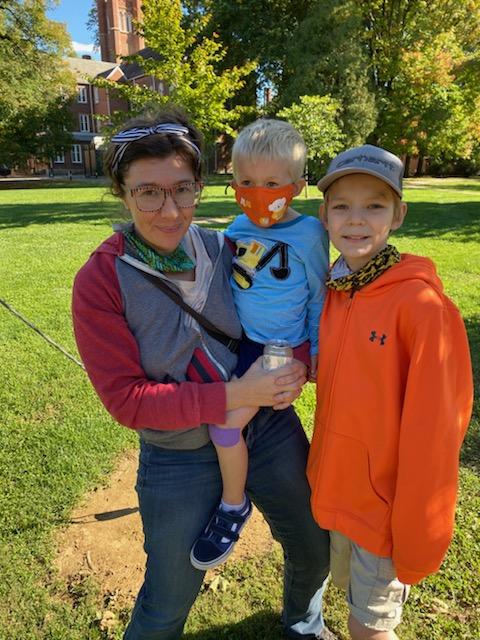
After doing four years of high school theatre, it is my understanding that it takes a certain type of special leader to run a show. It is not a task for the faint-hearted, and yet, Rachel Anderson-Rabern handles the job with grace.
Professor Anderson-Rabern is an Associate Professor of Theatre and works with the Theatre and Dance department, educating students on a variety of theatrical, acting, and art-related topics that test us creatively and intellectually. In addition to teaching, she directs yearly in F&M’s Theatre and Dance Department season.
This fall, Anderson-Rabern has been working on a musical titled Head Over Heels, a show described as “a new musical comedy set in the Renaissance era, featuring a 1980s rock score by the Go-Gos. Oracles, journeys, parties, and glam-rock meet period language and costumes.” Despite the century in which it takes place, the production features strong women leads and LGBTQ+ representation, and I look forward to seeing the show during True Blue Weekend.
During our conversation, Professor Anderson-Rabern emphasized the need for women in leadership positions across the country. There is no shortage of powerful women around the globe, and yet, representation in leadership positions is most certainly lacking in a variety of departments. However, Rachel Anderson-Rabern explained that by having women leaders on campus, future generations will persist with a view that they are strong, regardless of gender, and they too will have the opportunity to lead by example.
She also stressed the importance of uplifting BIPOC and LGBTQ+ communities rather than indirectly using them for our own benefit. Anderson-Rabern demonstrated that when we refuse to educate ourselves and rely on marginalized groups to teach us the things we should already know (it is 2020, and Google exists), we are contributing to the problem. In her career as a professor, and through her life’s work, she is constantly highlighting the idea that the voice of the oppressed is not ours to control, and her role is to instead uplift and support.
Just like my mother, Professor Rachel Anderson-Rabern is a self-described “solo parent.” Her proudest accomplishment is raising her children whilst working extremely hard here at Franklin & Marshall College, something that no one should view as an easy task. I can only imagine what wonderful people her children will become, and likely already are, under the care and guidance of such an amazing woman.
Professor Anderson-Rabern made it a point to explain that many of the candidates featured in this very article have, in times of need, aided in the care of her children, offering friendship and a great deal of help to a committed educator. What an incredible sense of community F&M must have to connect our people in such a beautiful way to support both professionalism and motherhood. This interplay between community support and professional caregiving highlights the indispensable role of professional nannies, not only in providing essential childcare but also in fostering a nurturing environment where families can thrive.
Stephanie Kessler
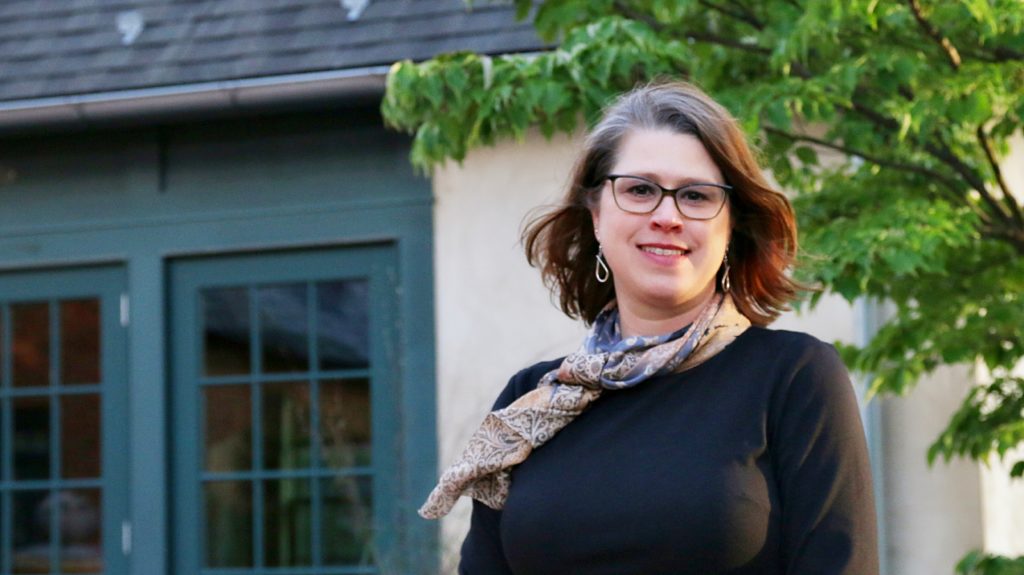
As the Student Development Adviser and Student Employment Associate Manager working with the Office of Student and Post-Graduate Development (OSPGD, for those who have been at F&M for more than five minutes), it is no surprise that Stephanie Kessler is so articulate, organized, and passionate. She has worked at Franklin & Marshall College for almost ten years, which has given her many opportunities to work with both students and alum. These interactions, in addition to her work with mindfulness activities on campus, her completion of a chair position for the Professional Staff Luncheon Committee, and her experience as a four-year Kappa Delta FPS advisor and as a Girl Scout Leader make her well-equipped to take the reins in a variety of situations.
When I introduced the idea of the importance of women on campus, Kessler returned my question with statistics, which showcased her dedication to facts and data in such a significant conversation on representation and inclusion.
“I think we’re absolutely so fortunate that we do have a college president who is female,” Stephanie noted, before detailing the numbers. “Only 30% of college presidents are female… Only 10% of countries in the world have female leaders.” She quickly pointed out that there were even fewer female CEOs.
To Stephanie Kessler, it is imperative that we bring women to the forefront and provide representation in departments where diversity may be lacking. Women, after all, come in all shapes and sizes, and every single model deserves a seat at the table.
“My teenage daughters are my greatest accomplishments,” she explained, making it immediately clear how greatly she cares for her family while simultaneously taking the strong roles she does on campus.
She also noted the importance of being able to have open lines of communication with her daughters and encourage conversation. Her daughters were described to already be incredibly strong, and it makes sense. They are led by an outstanding human being.
Xay ChongTua

Xay ChongTua is a familiar face on campus, and I was so excited to have the opportunity to speak with her for the first time. Her kindness, strength, enthusiasm, and warmth was refreshing in the face of this past year of chaos.
She is primarily known for acting as Associate Director for Multicultural Affairs and College House Operations, which enables her to work with the College Houses and collaborate with the annex HAs (which are the HAs in upperclassmen housing). In this role, she also helps convene the House Government Leaders, which is an incredibly important part of House collaborations.
In addition, she is the current advisor for the Asian Cultural Society and Knittervention, but Xay previously advised groups like the Black Student Union, Mi Gente Latina, Club Council, and the Yearbook Club. Involved is an understatement, and yet she does her job with an eagerness only held by someone who truly cares for F&M students.
“To have strong women is to have a strong community,” she told me, offering the notion that society depends on the work of women in leadership roles. This article itself seems to demonstrate that claim, and Xay is most certainly one of the best examples.
“This myth that behind every strong man there is a strong woman?” ChongTua continued. “Correction: behind every strong community, there are strong people willing to work with each other.”
Xay combats the idea that one specific gender should be responsible for holding the power; women do not simply back up their husbands, uplifting them when things get tough. Instead, women, men, and everyone on the gender spectrum must collaborate as a community, which ultimately creates a society of strength and versatility.
Everyday Xay uplifts multicultural groups and helps students grow closer to their house in an effort to find a sense of community. However, F&M is not the only place that ChongTua has found a sense of belonging, starting with the connections she has made with her family.
Her proudest accomplishment was moving back home to Lancaster, which led her to the life she has today. Xay was able to develop a strong relationship with her parents, and following her mother’s passing, she strengthened her relationship with her father. This included the difficult task of seeing beyond fatherhood and viewing her parent as a person, which now has provided Xay with a bond she will cherish forever.
When discussing what is next for Xay ChongTua, she made it clear that despite her busy schedule, focusing on oneself is one of the most important things a person can do.
“I’ve realized I have been so focused on investing in things and projects, but right now I want to invest in myself,” she explained, and this lesson is one that every college student can benefit from. Xay is a role model to many, and I know that I could learn a thing or two from her story.
Pauline Leet Pittenger

Despite our current framework of F&M women on campus in 2020, I find that it is important to reflect on our history. Although this college has only been a co-educational institution for fifty years, there have been many women faculty members, staff, and students who have exhibited incredible dedication to feminism as we know it today. In retrospect, Pauline Leet Pittenger was a remarkable woman that contributed nothing short of academic and creative excellence to Franklin & Marshall College and the world.
Here is an excerpt written by Professor Virginia Maksymowicz, who remembers Pauline fondly:
“With a BA from Boston University and a Masters in Education from Harvard, Pauline Leet first came to F&M in 1963 as an adjunct professor in the English Department. She had already been recognized for her literary accomplishments, having been published in The Harper’s Monthly six years earlier. She was soon asked to be the Director of Special Programs, where she oversaw PREP, a federally funded, pre-college enrichment program for disadvantaged high school students throughout Central Pennsylvania. In 1969 she became Associate Professor of Education and subsequently Chair of the Department, which was discontinued in the 1980s.
When the Steinman College Center opened in 1975, Pauline was appointed its first Director. She was responsible for mounting the first art exhibits in what was then the “Dana Room” (now part of the Phillips Museum). She also began a crafts program and set up a photographic darkroom. In 1980 she stepped in as Acting Associate Dean of Student Affairs, holding regular Friday get-togethers in Steinman in a lounge-like setting that became known as “Pauline’s Pit.”
Pauline left F&M in 1981 to accompany her husband, John Pittenger, to his new post as Dean of the Law School at Rutgers Camden. While there, she earned a second Bachelor’s degree, this time in Fine Art. When John left Rutgers in 1986, he and Pauline moved back to Lancaster.
Pauline continued to be involved in education. She established and ran a chess club at Reynolds Junior High School, and she followed her interest in art by auditing courses in the Art & Art History Department. She was an accomplished woodcarver and her beloved pickup truck — named Elvis — could often be seen parked outside the Herman Arts Center.
Pauline Leet Pittenger, a remarkable, generous, and talented woman, passed away in April 2018. Few realize that it was her who sculpted the relief that graces the plaque at the Kneedler Sculpture Garden. Fewer yet are aware that she is credited with coining the word “sexist” during a faculty-student forum at F&M. A copy of that speech, “Women and the Undergraduate,” is enshrined in the College’s Archives.” – Professor Virginia Maksymowicz
First Year Sarah Nicell is a Layout Assistant. Her email is snicell@fandm.edu.
